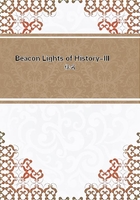
第122章
This second expedition was undertaken in seventeen vessels, carrying fifteen hundred people, all full of animation and hope, and some of them with intentions to settle in the newly discovered country until they had made their fortunes. They arrived at Hispaniola in March, of the year 1493, only to discover that the men left behind on the first voyage to secure their settlement were all despoiled or murdered; that the natives had proved treacherous, or that the Spaniards had abused their confidence and forfeited their friendship. They were exposed to new hostilities: they found the climate unhealthy; their numbers rapidly dwindled away from disease or poor food; starvation stared them in the face, in spite of the fertility of the soil; dissensions and jealousies arose;they were governed with great difficulty, for the haughty hidalgoes were unused to menial labor, and labor of the most irksome kind was necessary; law and order were relaxed. The blame of disaster was laid upon the Admiral, who was accused of deceiving them; evil reports were sent to Spain, accusing him of incapacity, cruelty, and oppression; gold was found only in small quantities; some of the leading men mutinied; general discontent arose; the greater part of the colonists were disabled from sickness and debility; no gold of any amount was sent back to Spain, only five hundred Indian slaves to be sold instead, which led to renewed hostilities with the natives, and the necessity for their subjugation. All of these evils created bitter disappointment in Spain and discontent with the measures and government of Columbus himself, so that a commission of inquiry was sent to Hispaniola, headed by Aguado, who assumed arrogant authority, and made it necessary for Columbus to return to Spain without adding essentially to his discoveries. He sailed around Cuba and Jamaica and other islands, but as yet had not seen the mainland or found mines of gold or silver.
He landed in Spain, in 1496, to find that his popularity had declined and the old enthusiasm had grown cold. With him landed a feeble train of emaciated men, who had nothing to relate but sickness, hardship, and disappointment. The sovereigns, however, received him kindly; but he was depressed and sad, and clothed himself with the habit of a Franciscan friar, to denote his humility and dejection. He displayed a few golden collars and bracelets as trophies, with some Indians; but these no longer dazzled the crowd.
It was not until 1498 that Columbus was enabled to make his third voyage, having experienced great delay from the general disappointment. Instead of seventeen vessels, he could collect but six. In this voyage he reached the mainland,--that part called Paria, near the mouth of the Orinoco, in South America, but he supposed it to be an island. It was fruitful and populous, and the air was sweetened with the perfumes of flowers. Yet he did not explore the coast to any extent, but made his way to Hispaniola, where he had left the discontented colony himself broken in health, a victim of gout, haggard from anxiety, and emaciated by pain. His splendid constitution was now undermined from his various hardships and cares.
He found the colony in a worse state than when he left it under the care of his brother Bartholomew. The Indians had proved hostile;the colonists were lazy and turbulent; mutiny had broken out;factions prevailed, as well as general misery and discontent. The horrors of famine had succeeded wars with the natives. There was a general desire to leave the settlement. Columbus tried to restore order and confidence; but the difficulty of governing such a disorderly set of adventurers was too great even for him. He was obliged to resort to severities that made him more and more unpopular. The complaints of his enemies reached Spain. He was most cruelly misrepresented and slandered; and in the general disappointment, and the constant drain upon the mother country to support the colony, his enemies gained the ear of his sovereigns, and strong doubts arose in their minds about his capacity for government. So a royal commission was sent out,--an officer named Bovadilla, with absolute power to examine into the state of the colony, and supplant, if necessary, the authority of Columbus. The result was the arrest of Columbus and his brothers, who were sent to Spain in chains. What a change of fortune! I will not detail the accusations against him, just, or unjust. It is mournful enough to see the old man brought home in irons from the world he had discovered and given to Spain. The injustice and cruelty which he received produced a reaction, and he was once more kindly received at court, with the promise that his grievances should be redressed and his property and dignities restored.